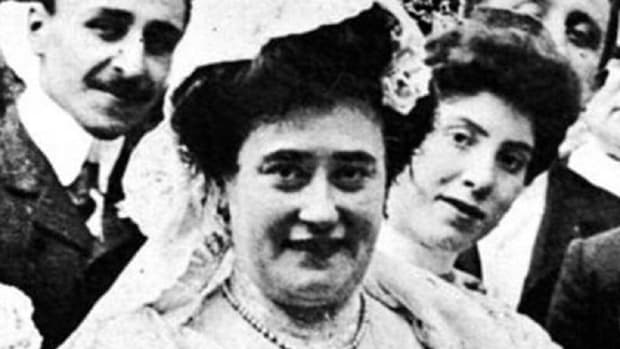Con Artists: Why Confidence Tricks Work
You Can't Cheat an Honest Man
The great W.C. Fields starred in a 1939 movie with the title You Can’t Cheat an Honest Man. Fields plays a shady circus owner, Larson E. Whipsnade, who is always able to skip across a state line just ahead of the sheriff.
The same sentiment expressed in the title of the Fields movie popped up again in The Flim Flam Man, a 1967 film starring George C. Scott. The central character (Scott) is Mordecai C. Jones M.B.S., C.S., D.D. (master of back-stabbing, cork-screwing, and dirty-dealing), who justifies his larceny by saying: “You can’t cheat an honest man.”
Both the Fields and Scott characters are portrayed as engaging rogues and their greedy victims as people who get what they deserve.
If only reality matched fantasy, but many confidence tricksters are evil to the core and their victims innocent and gullible.
Master Manipulators
As noted by Maria Konnikova, author of The Confidence Game, con men are created by the yearning of their marks “to believe in something that gives life meaning ... Their genius lies in figuring out what, precisely, it is we want, and how they can present themselves as the perfect vehicle for delivering on that desire.”
Con artists prey on human frailties such as gullibility, vulnerability, and greed. The unwary, naïve, and trusting will get some sympathy, but few people are sorry for those who get taken to the cleaners by the promise of illicitly gained money.
Dr. David Modic of Cambridge University, England researches online deception and the psychology of persuasion. The BBC reports on some of the traits he has identified that make people susceptible to hucksters:
“… a lack of self-control we would probably recognize as dangerous. But others―a trust in authority, a desire to act in the same way as our friends, or a tendency to act in a consistent way―we might think of as good characteristics.”
Crooks use distraction in the same way that close-up magicians do. A drop-dead gorgeous female accomplice causes many men to shift their focus away from the con enough to be swindled.
The kindness and generosity of people can be turned against them by villains setting up phony charities to seek donations after some massive natural disaster.
Real Hustle (BBC) Exposes Scams
Six Principles of Persuasion
Robert Cialdini is a professor of psychology and marketing at Arizona State University. He has developed the gold standard for salespeople to use to close a deal; his six principles have also proved handy with the chiseler fraternity.
He says that influencing people to take a particular course of action is not magic or luck―it’s science:
- Reciprocation. Put the target in a position of feeling indebted so they will feel obligated to give something in return―the free sample comes into play here.
- Social proof. Make the person feel they are taking an action that is in concert with their peer group―the herd mentally works a treat in selling worthless stock.
- Commitment and consistency. Getting people to say “yes” is a standard sales technique. The first “yes” may have nothing to do with the sale, but getting more affirmative answers establishes a pattern that people don’t like to break―before they know it, the target has said yes to the deal.
- Liking. Physical attractiveness is a great asset to the con artist and people love to hear compliments about themselves. Combined, these two characteristics make people far less skeptical about the pitch they are hearing.
- Authority. Bespoke tailoring, high-end cars, and swanky offices soften people up for the trick. A medical degree or university doctorate, whether real or fake, works wonders.
- Scarcity. The more rare or uncommon an item is, the more people want it. “This is the only painting Picasso did with his left hand. It will rise in value enormously.”
The Motivation of Greed
The get-rich-quick schemes are probably as old as money. There are tips for sale on insider information for stock market plays or racetrack bets. But the obvious question ("If the information is so good, why isn’t the tipster keeping it for himself?") rarely seems to occur to the victim.
Pyramid marketers continue to sucker people into investing on promises of huge payouts. Salting a mine with precious gems or metal is an old trick that has persuaded many to put their money into a worthless property, ignoring Mark Twain’s warning that “A gold mine is a hole in the ground with a liar on top.”
Recommended
The advance-fee fraud has been around since the late 19th century, when victims were told a wealthy person was improperly held in a Spanish jail. A substantial bribe, provided by the victim of course, needed to be paid to get the prisoner out, at which time the benefactor would be handsomely rewarded.
Its modern equivalent is the email about the African monarch who needs help getting his money out of his country.
Perhaps all of us have a little thievery in us—we like to keep it out of sight, but con artists can expertly tap into it.
Preying on Vulnerability
Romance offered to lonely people is an easy way of opening wallets and depleting bank accounts. The Daily Mirror in the U.K. notes:
“New research suggests that over 200,000 Brits have fallen victim to online romance scams―far more than previously thought.”
Nick Sommerlad writes that crooks use bogus photos of beautiful women or husky men on web-based dating services or social networks to attract marks. “There then follows lengthy lovey-dovey email correspondence and phone calls.”
And just before the first face-to-face meeting comes the request for money to help out with some noble cause, such as a sick grandmother.
Miracle Cures
Perhaps at the bottom of the con artist food chain are the people who offer cures to the very sick. In August 2012, Scott Pelley of 60 Minutes exposed the operations of Dr. Dan Eklund in Alabama.
The doctor, although he lost his license to practice, was offering stem-cell therapy for illnesses such as cerebral palsy for $20,000. There was no credible evidence that the treatments worked.
However, Pelley noted that the desperately ill “can find hundreds of sophisticated websites offering stem-cell treatments for every hopeless disease.”
It’s not difficult to see why someone given a death sentence by their doctors might be vulnerable to a smooth-talking charlatan.
Bonus Factoid
- Only dimwits fall for con tricks, right? Nope, some very smart brains get taken. Paul Frampton is a highly educated academic and former professor of physics at the University of North Carolina. In 2012, he got a five-year prison sentence when he fell for an online dating swindle that involved smuggling drugs.
Sources
- “Chickens, Home to Roost.” Maureen Dowd, New York Times, March 5, 2016.
- “Stem Cell Fraud.” Scott Pelley, 60 Minutes, August 26, 2012.
- “How Con Artists Trick your Mind.” Colin Barras, BBC Future, October 3, 2014.
- “Dr. Robert Cialdini and 6 Principles of Persuasion.” Tom Polanski, Ebizine, undated.
- “Hidden Pain of 200,000 Lonely Hearts Scam Victims.” Nick Sommerlad, Daily Mirror, September 28, 2011.
"The Pigeon Drop"
Related Articles
- Lonely Hearts Scam
The internet has made it possible for victims of sweetheart swindles to be counted in the millions rather than the thousands. - How to Avoid Wedding Scams
Americans spend about $50 billion a year on weddings, and with that kind of coin skittering about, some unsavoury characters are bound to be attracted. - The Pigeon King Swindle
How a con man duped struggling farmers into a pigeon breeding scheme that had fraud written all over it.
© 2016 Rupert Taylor
















